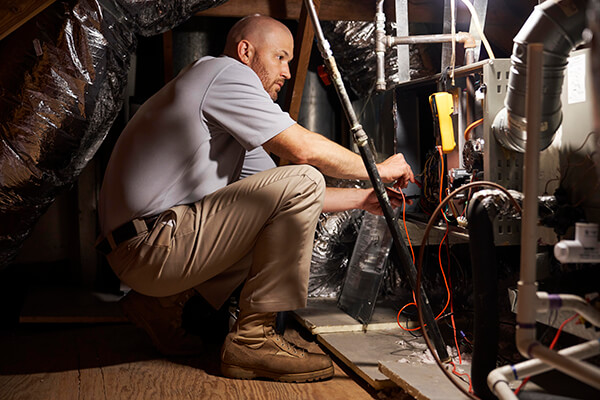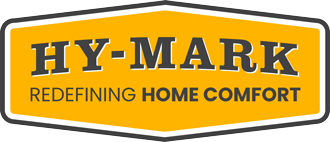A water softener is a device or system designed to reduce the concentration of calcium, magnesium, and other minerals in hard water. The process of removing these minerals is called water softening. Hard water is characterized by high levels of dissolved minerals, primarily calcium and magnesium ions, which can lead to various issues in homes and industries.
The primary components of a typical water softener system include:
- Resin Tank: This tank contains resin beads that are charged with sodium ions. The resin beads attract and hold onto calcium and magnesium ions during the water softening process.
- Brine Tank: This tank stores a solution of salt (sodium chloride) and water, known as brine. During the regeneration cycle, brine is used to wash the resin beads and replace the calcium and magnesium ions with sodium ions.
- Control Valve: The control valve is the brain of the water softener, regulating the flow of water during various phases of the water softening process, including service, backwash, rinse, and regeneration.
The Water Changing Process
The water softening process involves an ion exchange that removes hardness minerals, primarily calcium and magnesium, from water. The most common type of water softening system is a salt-based water softener, and the process typically consists of several stages:
- Softening Cycle: Hard water passes through the resin tank, where the resin beads exchange sodium ions for calcium and magnesium ions, effectively softening the water.
- Backwash Cycle: The control valve reverses the flow of water to flush out accumulated debris and re-settle the resin beads.
- Rinse Cycle: The resin tank is rinsed to remove any remaining brine and prepare the system for the next softening cycle.
- Regeneration Cycle: During this cycle, brine from the brine tank is drawn into the resin tank to replenish the resin beads with sodium ions. The displaced calcium and magnesium ions, along with the excess brine, are flushed out.
- Rest: Return to Service: After regeneration, the water softener returns to its normal operating mode, providing softened water until the resin beads are saturated with hardness minerals and the cycle repeats.
It’s important to note that the regeneration cycle is a crucial aspect of water softening with salt-based systems. The frequency of regeneration depends on water hardness, water usage patterns, and the specific settings of the water softener.
The water softening process ensures a continuous supply of softened water for household use while preventing the negative effects of hard water, such as scale buildup in pipes and appliances. Regular maintenance, including adding salt to the brine tank, is necessary to keep the water softener operating effectively.
The Benefits of Using a Water Softener In Guelph
Using a water softener in Guelph, Kitchener, Cambridge, Waterloo or Owen Sound has numerous benefits for both households and businesses, especially when it comes to managing water quality. Here are the major advantages:
- Preventing Scale Buildup: Softened water helps prevent the accumulation of scale deposits in pipes, faucets, and appliances.
- Improved Soap Lathering: Soft water allows soap to lather more easily, leading to better cleaning and reduced soap usage.
- Extended Appliance Lifespan: Water softeners can contribute to the longevity of water-using appliances such as water heaters, dishwashers, and washing machines by reducing mineral buildup.
- Softer Skin and Hair: Softened water can result in softer skin and hair, as it doesn’t leave behind mineral residues.
- Enhances Efficiency of Water Heaters: Water heaters operate more efficiently with softened water. The absence of mineral deposits allows the heating element to function optimally, improving energy efficiency and reducing energy costs.
- Preserves Clothing and Fabrics: Softened water is gentler on clothing and fabrics. It helps preserve the color and texture of fabrics during washing, reducing the wear and tear caused by hard water.
- Reduces Plumbing Maintenance: Softened water minimizes the formation of scale in plumbing systems, reducing the need for maintenance and repairs. This can lead to cost savings in the long run.
- Improved Efficiency of Dishwashers: Dishwashers operate more efficiently with water softener water. The absence of mineral deposits improves the dishwasher’s performance and extends its lifespan.
- Easier Cleaning: Softened water makes cleaning tasks easier by preventing the buildup of soap scum and mineral deposits on surfaces. This results in cleaner and shinier surfaces throughout the home.
- Environmental Impact: By reducing the need for harsh cleaning chemicals and preserving the efficiency of appliances, water softeners contribute to a more environmentally friendly and sustainable household.
In summary, using a water softener in Guelph has a multitude of benefits, ensuring that households and businesses can enjoy the advantages of softened water in various aspects of daily life. They provide an effective solution to the challenges associated with the presence of mineral ions in water.
Looking For a Water Softener Rental?
 Enjoy significant savings when you purchase a water softener or reverse osmosis system outright. Experience the Hy-Mark difference at a special rate, enhancing the quality of water throughout your home. Our flexible rental plans also make it easy to enjoy the advantages of softened water on a budget-friendly basis. With years of industry expertise, we understand the unique water quality needs of homes in Guelph, Kitchener, Cambridge, Waterloo and Owen Sound. Our team is committed to providing tailored solutions that suit your lifestyle.
Enjoy significant savings when you purchase a water softener or reverse osmosis system outright. Experience the Hy-Mark difference at a special rate, enhancing the quality of water throughout your home. Our flexible rental plans also make it easy to enjoy the advantages of softened water on a budget-friendly basis. With years of industry expertise, we understand the unique water quality needs of homes in Guelph, Kitchener, Cambridge, Waterloo and Owen Sound. Our team is committed to providing tailored solutions that suit your lifestyle.
